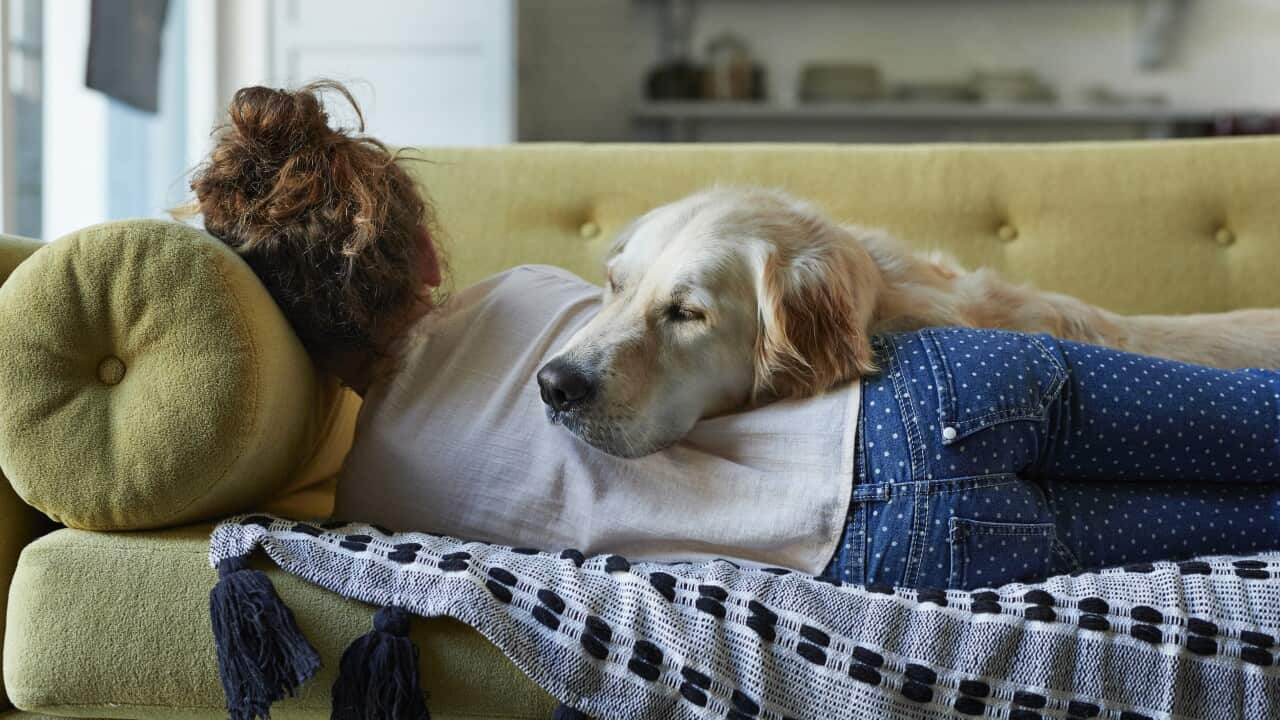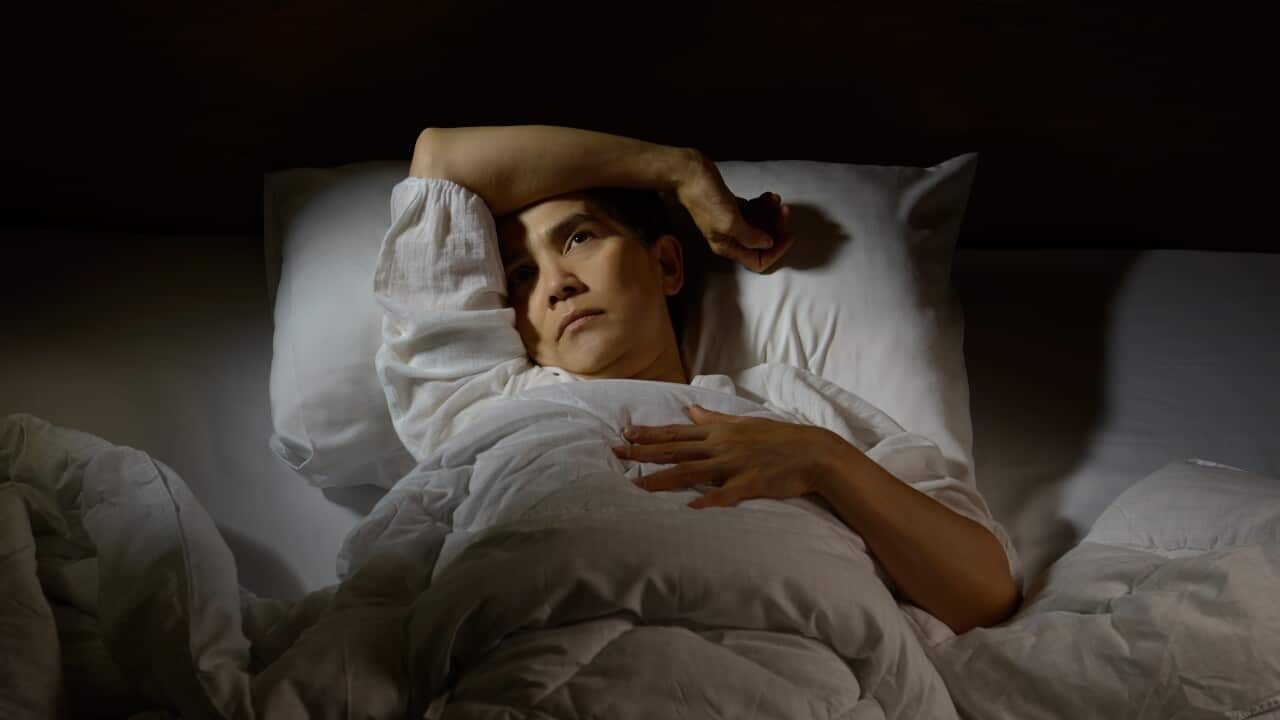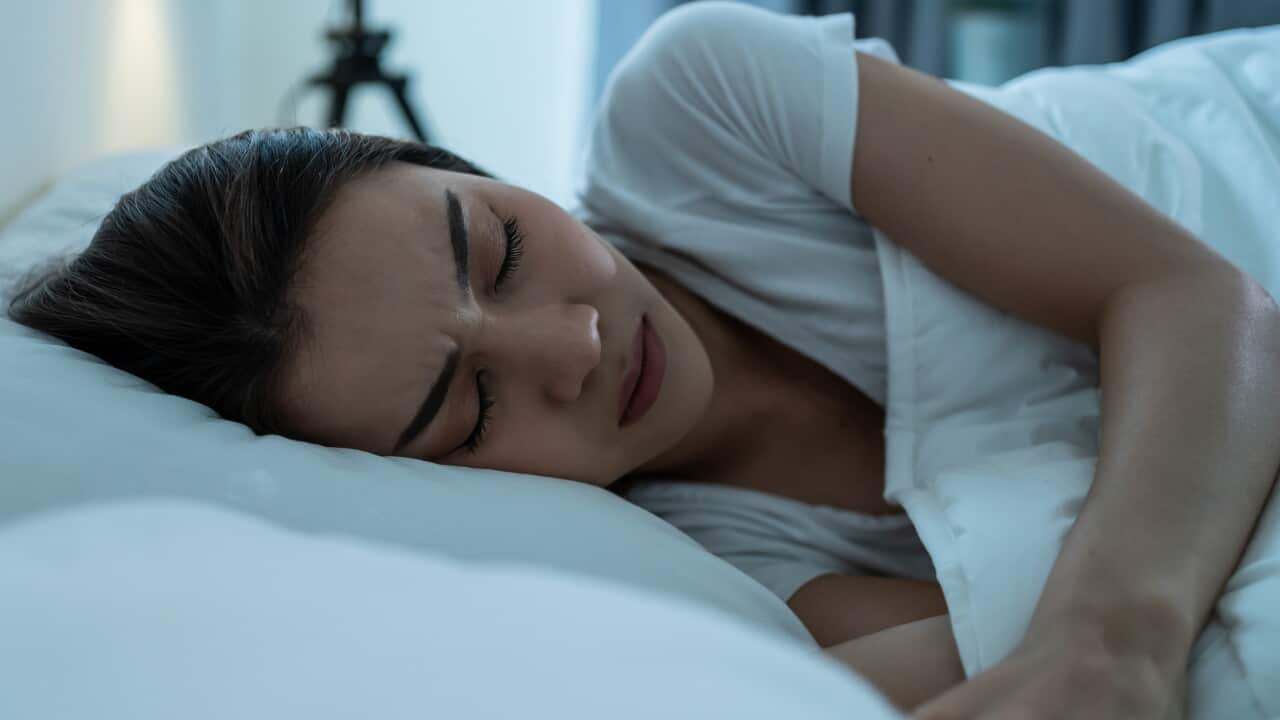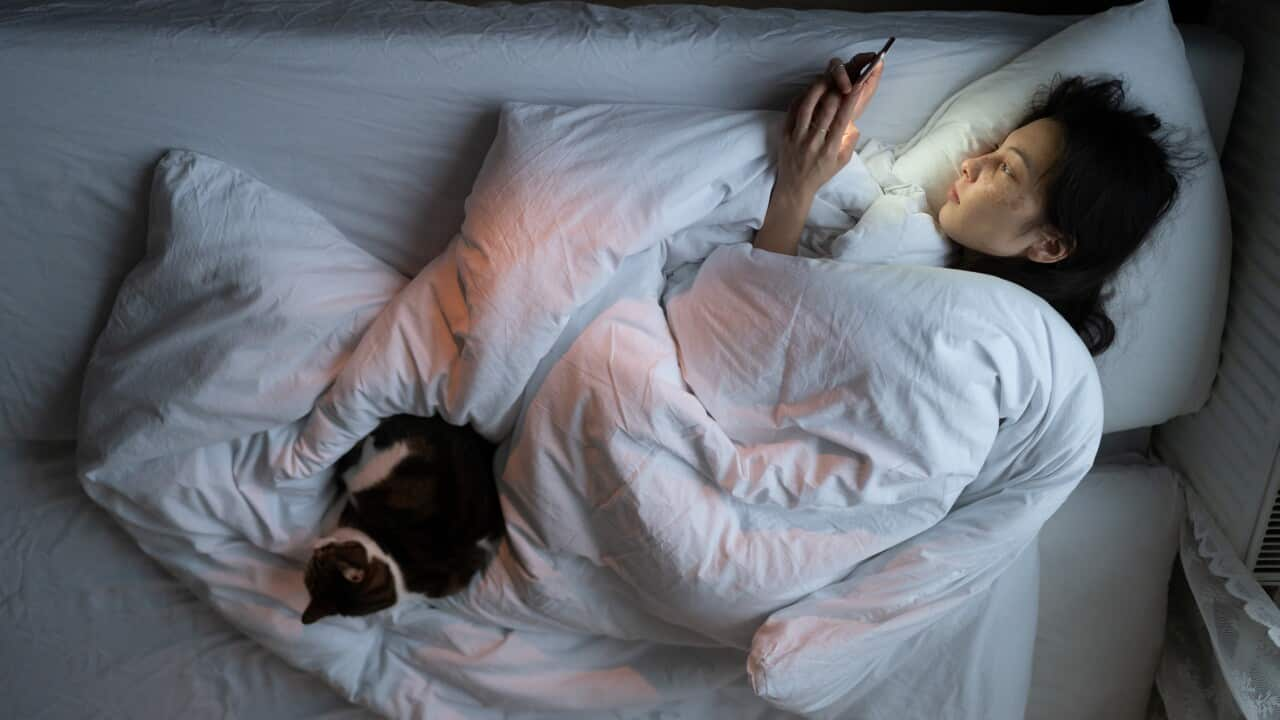If you wake up in the morning wishing you could hit the snooze alarm and get a few more snoozes, you're not alone.
Almost 3 in 4 (71 per cent) Australians struggle to get a good night's sleep, according to a new survey from financial comparison site Finder based on responses from 1,010 participants.
Of those surveyed in December 2024, 33 per cent struggled to fall asleep, 33 per cent struggled to stay asleep, 18 per cent needed a bathroom break during the night, and 11 per cent were kept up by their partner snoring.
At least 10 per cent were awoken by their own snoring, 8 per cent suffered from sleep apnea, 8 per cent were woken by their pets, and 6 per cent were woken by their kids.
Only 29 per cent didn't record having any sleep issues during the night.
To top it off, according to the survey, the average Australian gets 6.9 hours of sleep each night, but one expert says that even this number might be inflated — and it's got her worried about "major flow-on effects" for our health.
Are Australians getting enough sleep?
Sorry, but probably not.
Alexandra Shriane, a sleep researcher and PhD candidate at the Appleton Institute at Central Queensland University, says it's "safe to assume that the majority of Australian adults aren't getting enough quality sleep".
While the Finder study suggests 75 per cent of us are sleep-deprived, Shriane believes there may be even more of us suffering.
"Many people may be overestimating the amount of sleep they're getting — the time you spend in bed isn't the same as the time you spend asleep," she told SBS News.
Other research from the Australian Institute of Health and Welfare (AIHW) suggests a more conservative number, with a 2016 study estimating that 66 per cent of adults had at least one sleep problem, and almost half (48 per cent) had at least two sleep-related problems.

Just 29 per cent of Australians recorded not having any sleep issues during the night. Source: SBS News
How much sleep do you need?
The general recommendation is that healthy adults aim for seven to nine hours of quality sleep each night, Shriane said.
This figure is based on thousands of studies from across the world, which have found people who regularly get less than seven hours of sleep are much more likely to develop a wide range of poor health and wellbeing outcomes.
On the contrary, those sleeping more than nine hours may have an underlying health problem or sleep disorder, she said.
She's also sceptical of people who are regularly running on fumes.
"Sometimes we glorify sleep deprivation, and you'll hear people say that they get by just fine on five hours a night," she said. "The likelihood that the seven to nine-hour recommendation doesn't apply to these people and that their bodies and brains aren't negatively impacted by chronic sleep deprivation is slim to none."

We should be sleeping a minimum of seven hours a night, but this might be even more depending on your age and sex. Credit: David Mao / Unsplashed
Do some people need more sleep than others?
If the magical seven to nine-hour recommendation applies to healthy adults, what about other groups?
"Children need more sleep than adults, and this amount changes across their development stages," Shriane said.
Toddlers need 11 to 14 hours every 24 hours, while teenagers need eight to 10 hours a night.
If you're older than 65, AIHW says you only need seven to eight hours of sleep.
Shriane said there's evidence suggesting women may need to snooze more than men. "They may sit at the higher end of the recommendation range towards nine hours a night, while men might sit more toward the lower end at seven hours a night."
Those with some health conditions that cause fatigue will likely need more hours too.
Sleep: Quality vs quantity
It can be easy to focus on the hours we're in bed and lose sight of the importance of sleep quality, which is just as crucial.
"We know that most adults aren't getting enough sleep, but many people aren't getting good quality sleep either," Shriane said.
While it's hard to measure our quality of sleep outside of a lab, Shriane said there are some indicators you can follow to determine whether your sleep is actually topnotch — and the easiest is gauging how you feel when you're awake.
"If you're always really tired, have low energy, or regularly struggle to stay awake in the afternoon, this could mean you're not getting quality sleep," she said. "Even subtle signs, like frequent minor illnesses like colds, having really intense food cravings, or extreme fluctuations in mood, can be indicators that you're not meeting your sleep needs."
READ MORE
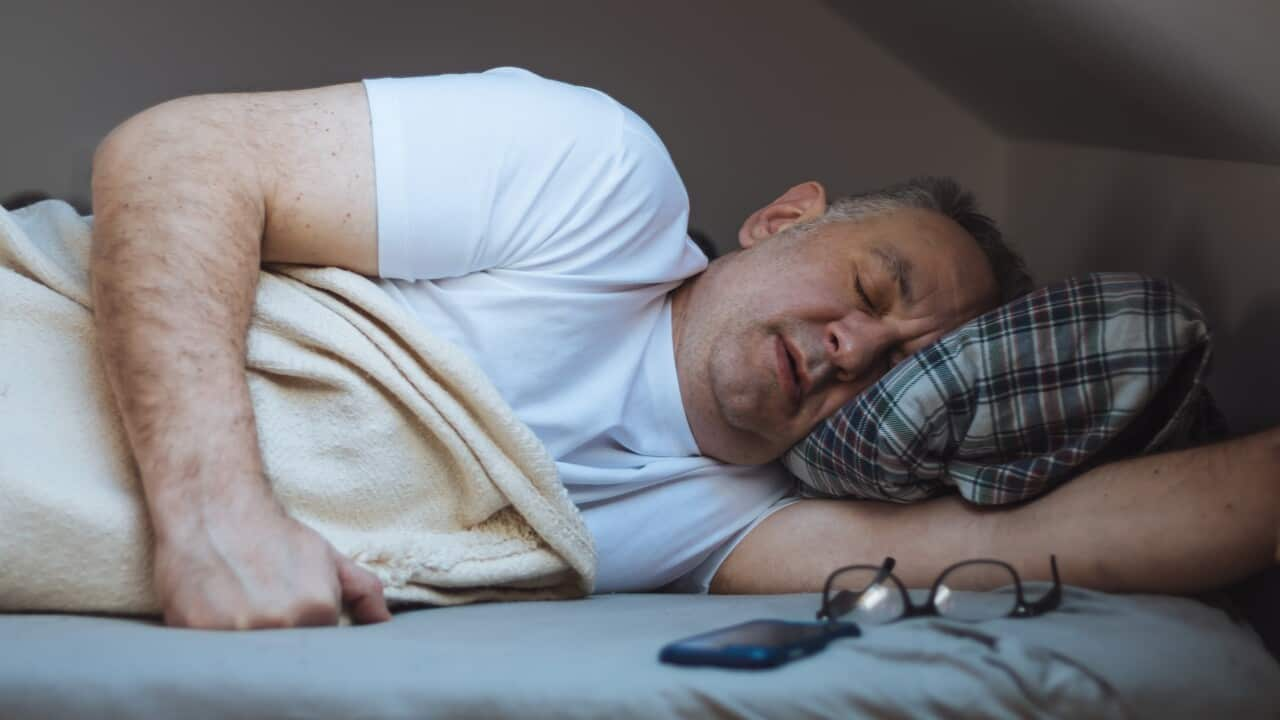
The secret to a better night's sleep
How does poor sleep affect us?
While it can be easy to brush off sleep as life gets frantic, the effects of sleep deprivation can be dangerous.
Short-term sleep deprivation can affect our immune systems, how our brain processes information, our ability to regulate our mood and stress, and might cause intense food cravings.
For those who are chronically deprived, these impacts can build up over time and can be hard to reverse.
"Some things to consider if you're routinely not getting enough quality sleep — you're going to struggle to maintain a healthy weight, you're more likely to develop diabetes, heart disease, high blood pressure, cognitive problems like dementia, and even some forms of cancer," Shriane said.
"Sleep is a pillar of health alongside your nutrition and physical activity — when you don't look after it, it has major flow-on effects for health and wellbeing."
Tips for better sleep
While there might be lots of gadgets and supplements on the market that claim to improve your sleep, Shriane said many of these aren't backed by science and will only dent your hip pocket.
Instead, she recommends simpler measures:
- Go to bed and wake up at roughly the same time each day (yes, even on weekends).
- Try not to nap during the day — and if you do, do it early and keep it to 15 to 20 minutes.
- Don't consume caffeine six to eight hours before sleep.
- Limit alcohol and nicotine as much as possible, and avoid them four hours before sleep.
- Practice a wind-down routine and avoid bright lights one to two hours before sleep.
- Only use your bed for intimacy (no work calls, thanks).
- Keep your bedroom dark, quiet, well-ventilated and cold (16 to 20 degrees, ideally).
- If you don't fall asleep in 20 minutes, get up and do something relaxing in a dimly lit environment until you feel sleepy.
- Of course, if you're regularly struggling with sleep, consider speaking with a professional.
